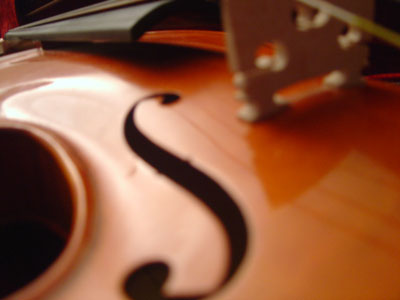All Nonfiction
- Bullying
- Books
- Academic
- Author Interviews
- Celebrity interviews
- College Articles
- College Essays
- Educator of the Year
- Heroes
- Interviews
- Memoir
- Personal Experience
- Sports
- Travel & Culture
All Opinions
- Bullying
- Current Events / Politics
- Discrimination
- Drugs / Alcohol / Smoking
- Entertainment / Celebrities
- Environment
- Love / Relationships
- Movies / Music / TV
- Pop Culture / Trends
- School / College
- Social Issues / Civics
- Spirituality / Religion
- Sports / Hobbies
All Hot Topics
- Bullying
- Community Service
- Environment
- Health
- Letters to the Editor
- Pride & Prejudice
- What Matters
- Back
Summer Guide
- Program Links
- Program Reviews
- Back
College Guide
- College Links
- College Reviews
- College Essays
- College Articles
- Back
Last Songs for the Cello
The cello is an old woman now. Her arched wooden sides, once glossy and resplendent with varnish, have cracked and faded, their majesty decaying into something like forgotten beauty. Her scroll, ornately carved, has slowly chipped and fallen to ruin over the years, gradually crumbling under the many clumsy hands that have caressed her, held her, and inevitably broken her. She is a mere memory of the love worked into her by the gentle hand of the elderly man who shaped her with his large, calloused hands, and attached the tag that still hangs, yellowed and frayed, from a dusty red ribbon on her peg.
The cello is an old woman now. She has watched her many children grow, learn…and leave. They come to her, in the beginning, with what they think is music, what they think are the sounds of the cello. And she shows them real music, the real sounds of the cello. She teaches them, writhes beneath their awkward fingers, sings loudly for them the beautiful notes contained within her. She proudly observes as they learn, understand. They come to love her for it. And then, inevitably, they hold her for the last time, play a last fond note, and place her back into the closet. They look at her a bit sadly, fond memories echoing through the room as her music once did, and then close the door.
The cello is an old woman now. She cannot sing as she once did, in the glory days of her youth. Her voice once rang true, clear, a beautiful alto to slip gracefully beneath the high young voices of the violins. Her words used to be smooth and flowing, blending together in a wonderful melody. Yet she cannot help but know that she has a different sound these days. She has grown scratchy in the way old voices do, fainter. The violins, with their young woman’s eagerness and ability, overwhelm her when they sing together, yet she sounds frail when she sings alone.
The cello is an old woman now. All of her friends have gone, gone to wherever it is that they are taken, once they have passed their prime and are too old and worn for even the youngest of players. She knows in her heart that this is to the basement, to the dark and the damp and the decay. She knew each of them by the sound of their voice, yet now those voices have been silenced, to be replaced with bright new ones, impetuous and so young, their rich wood not yet faded, their songs not yet full of the same world-weary yearning as hers.
The cello is an old woman now. The girl that is her player is young, naïve, graceless and untaught. Her fingers curve faultily, her elbow hangs, even her feet are placed wrong, and yet the cello does not have the heart, or the energy, to teach her. So this girl will not improve. So be it. The cello has taught many in her time, one girl will not ruin them all. Yet while this big, strong, clumsy girl grapples with her, she cannot help but remember the boy, or man really, who lifted her from the box, dusted her off, smiled, and played. It was music the likes of which she had never heard, did not know she could produce. They moved together perfectly, harmoniously. His hands were graceful, long-fingered and elegant, and they did not force the music from her as this girl did, but rather coaxed it, drew it out into the air. His bow slid smoothly across her strings, in a textbook fashion, the likes of which she has not seen since.
The cello is an old woman now. She has not seen the likes of that boy again, though she has taught many, many a young man and woman. She has not been played like that, understood like that, since the boy left her. It was a long time ago, yet she still feels the ache of his desertion all through her body. She had watched him grow into a handsome man and an accomplished musician.
But he too, left her.

Similar Articles
JOIN THE DISCUSSION
This article has 2 comments.

41 articles 8 photos 56 comments
Favorite Quote:
I have hated the words and I have loved them, and I hope I have made them right.<br /> -Marcus Zusak, The Book Thief